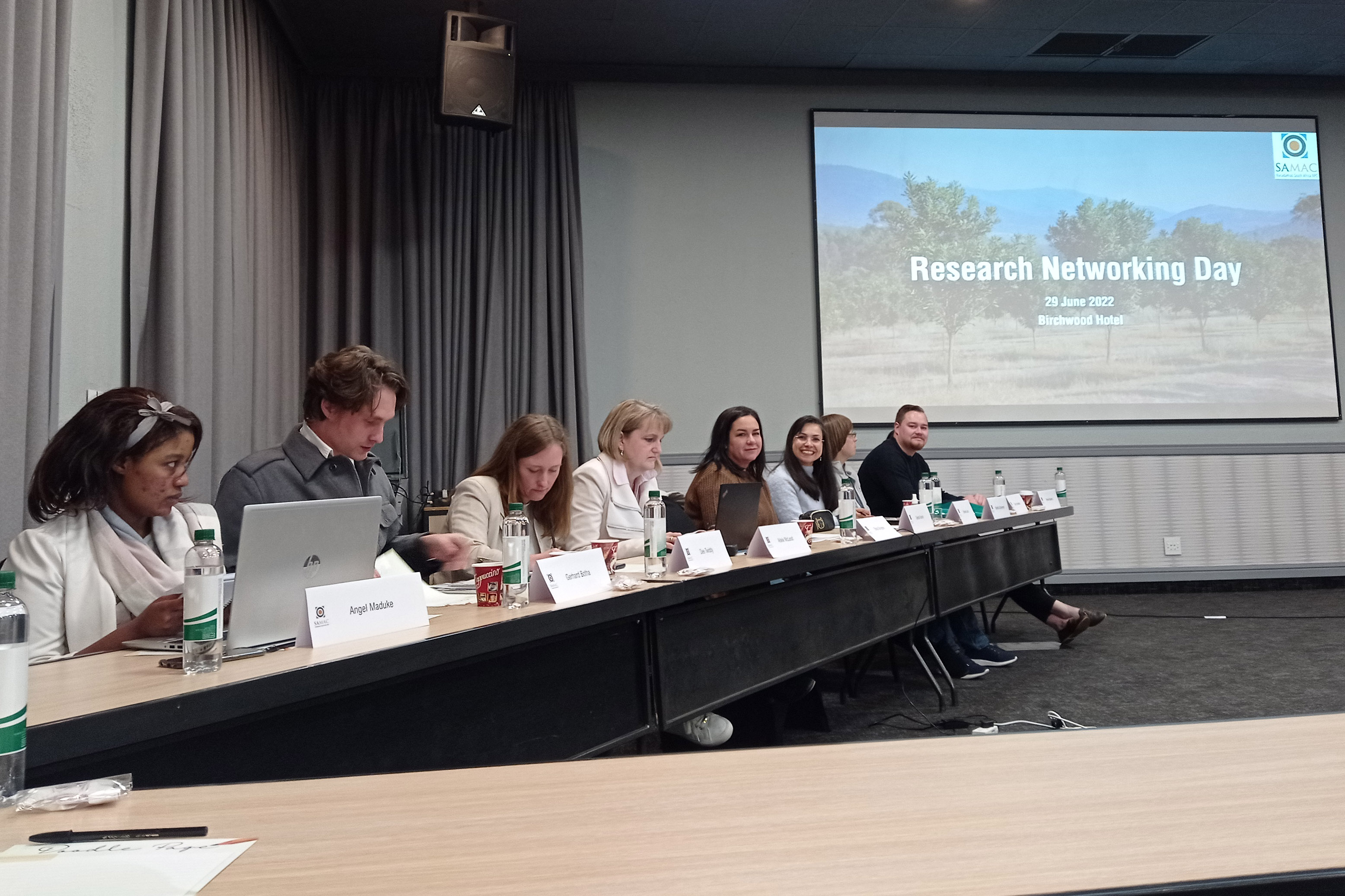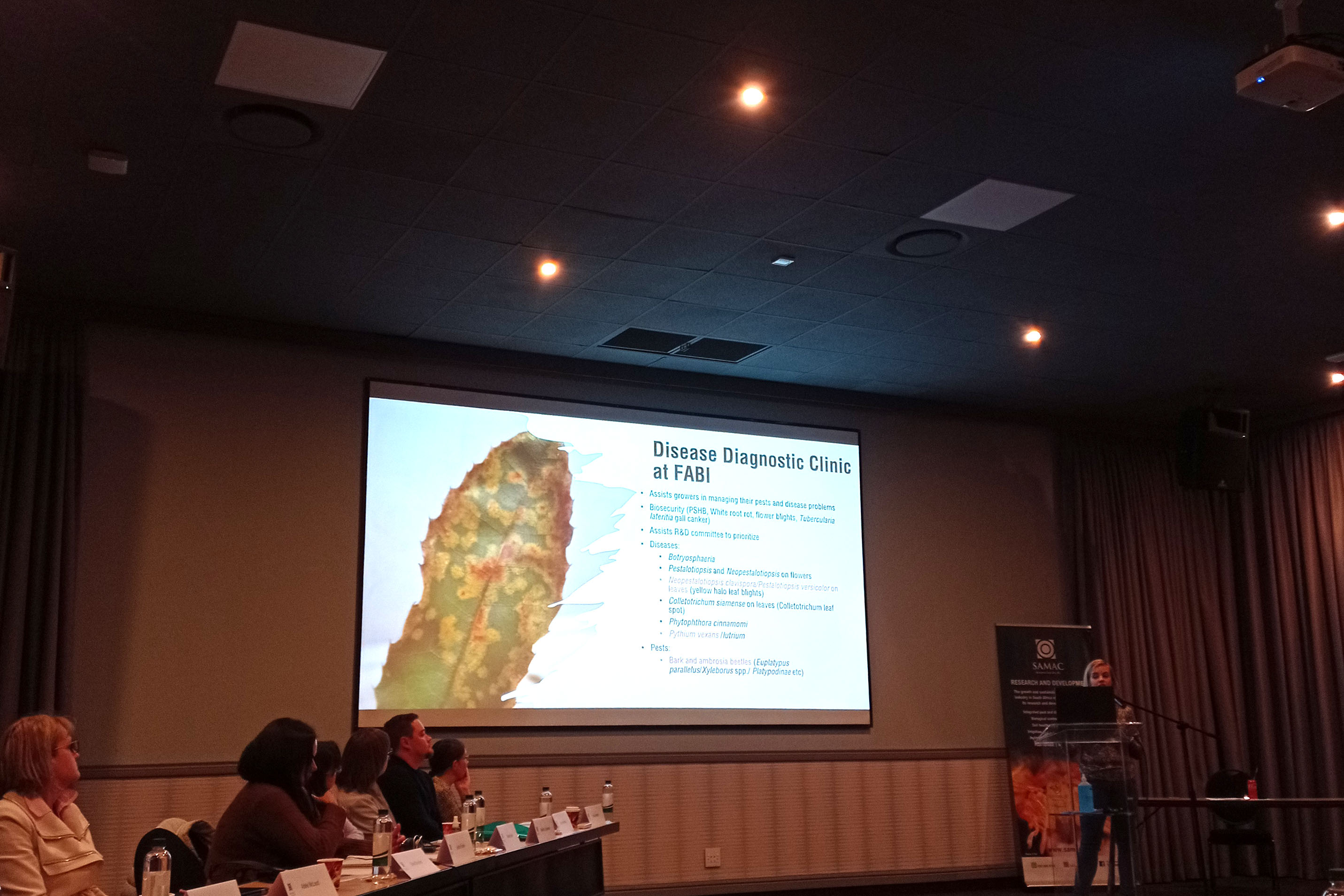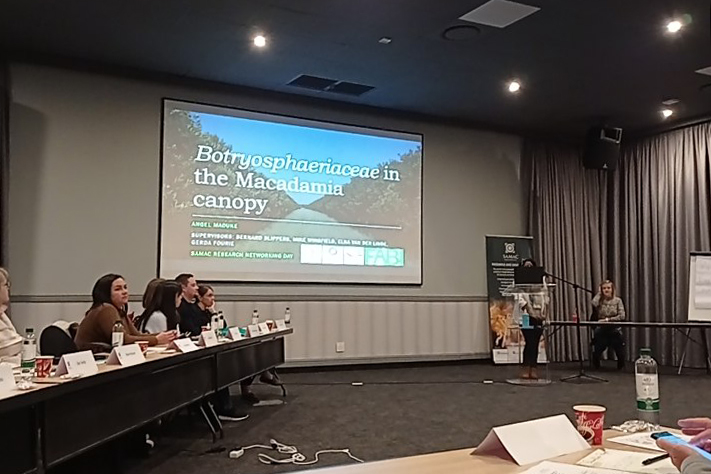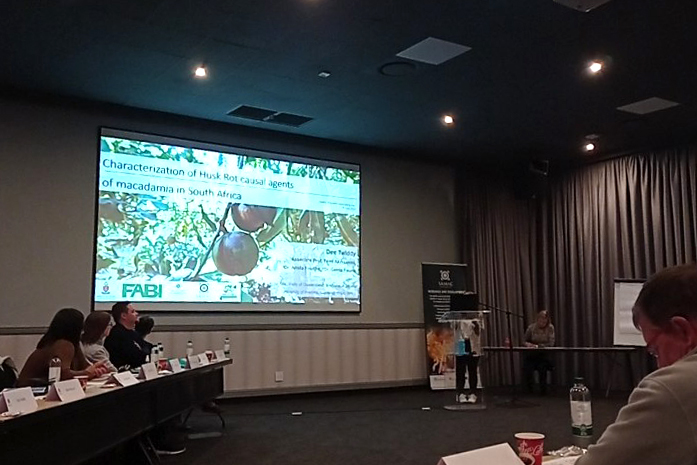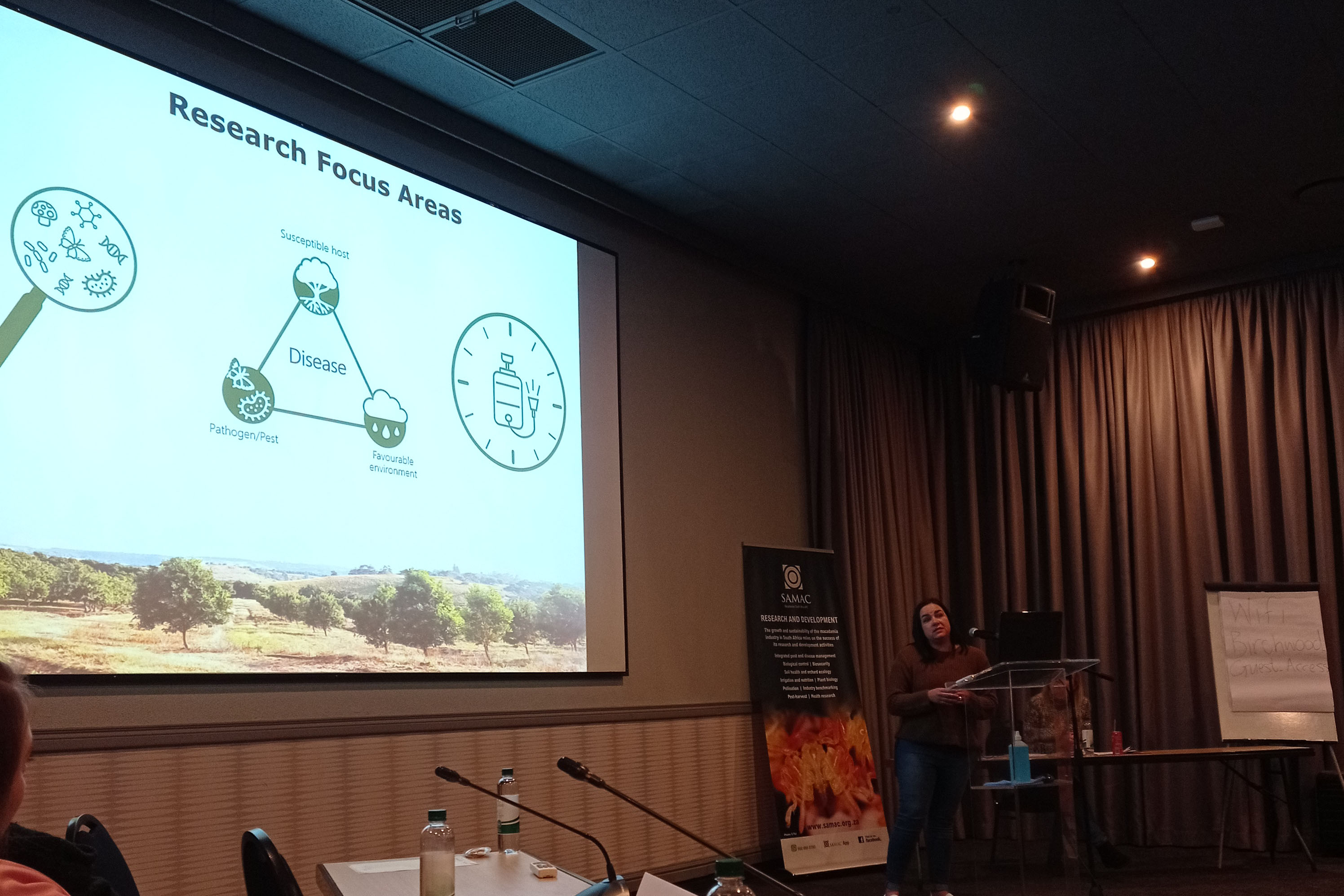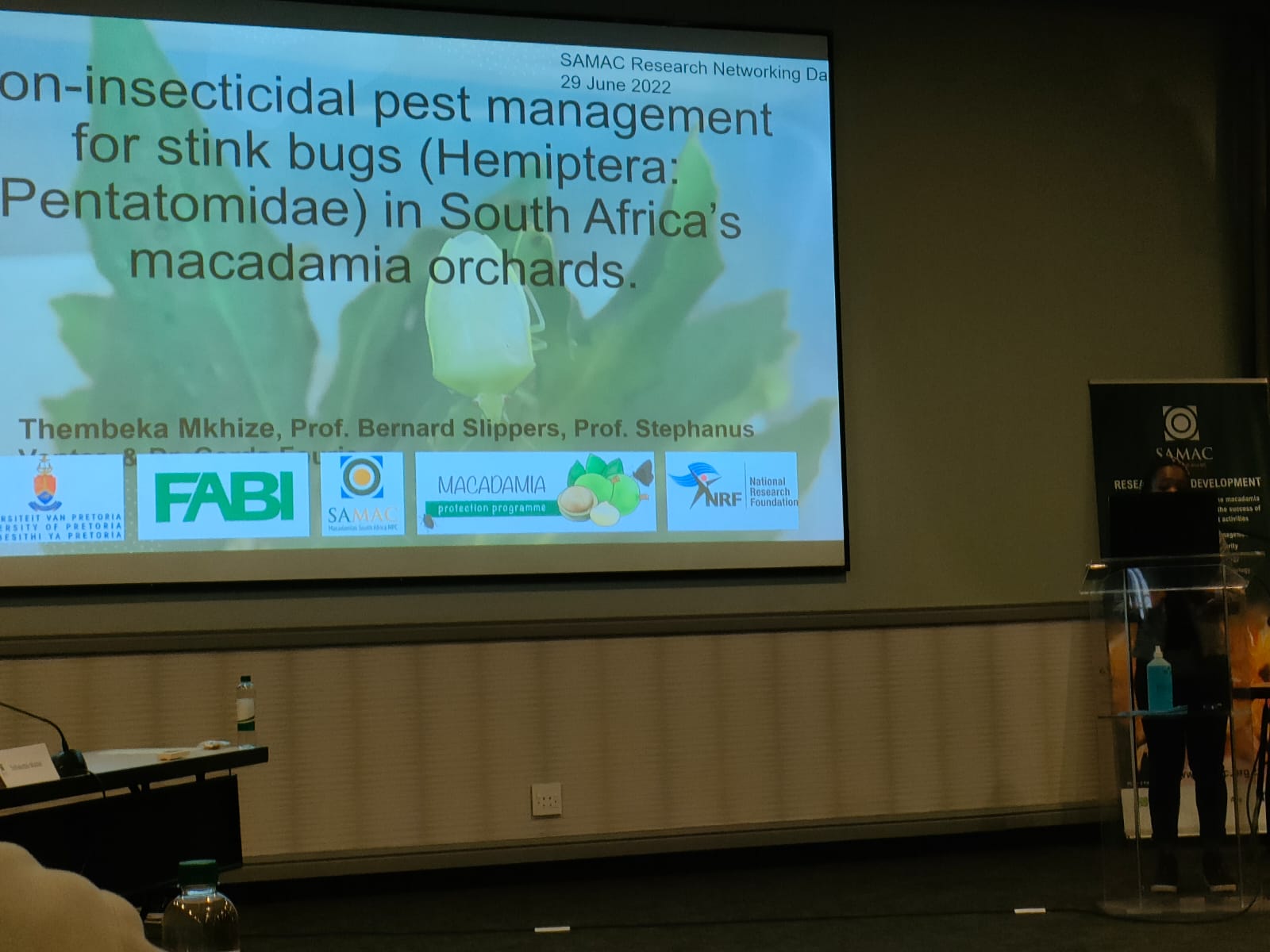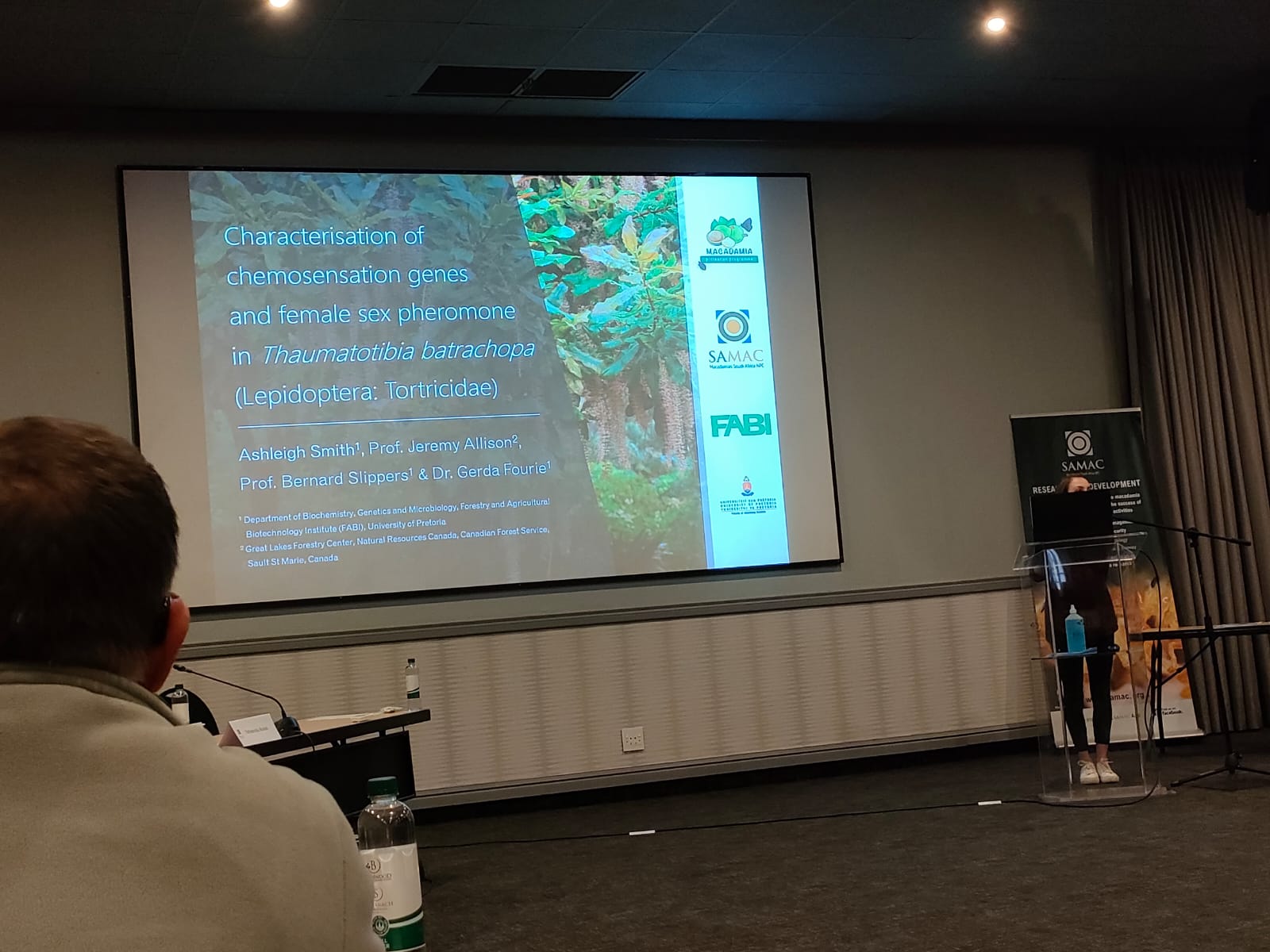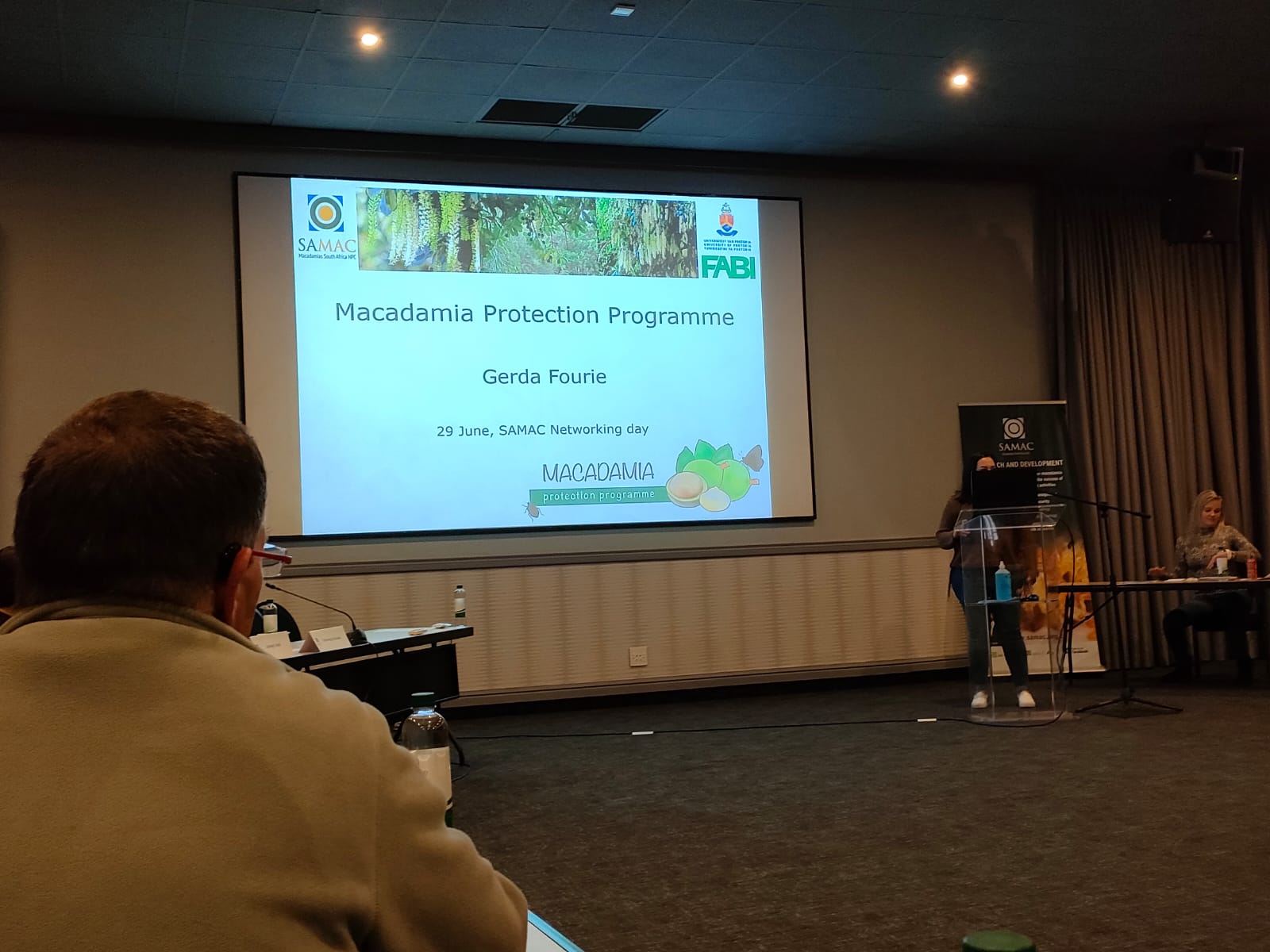The Macadamia team attended the SAMAC Research Networking Day 2022-07-27
On 29 June, members of the Macadamia Protection Programme (MaPP) attended a SAMAC (Macadamias South Africa NPC) networking day in Johannesburg. The purpose of this event was for SAMAC-funded researchers to provide a brief overview of their new and on-going research projects. The day provided researchers the opportunity to connect with various technical advisors and other researchers from various different institutions and Universities across South Africa. The day was organised around four sessions: Diseases, Pests, Production and Post-harvest that consisted of a three-minute presentation by each attendee and a panel discussion at the end of each session. FABI, through members of the MaPP and Forest Molecular Genetics group (FMG), was well represented in three of the four sessions. Angel Maduke (PhD candidate) opened the Disease session with her talk on Botrysophaeria dieback, followed by Gerhard Botha (MSc candidate) and Byron Sonnekus (PhD candidate) who presented on the flower blights diseases. Dee Twiddy (MSc candidate) ended the diseases session with a presentation on husk rot. The Pests session was mostly by the MaPP with Elisa Pal (PhD candidate) who opened the session with her talk on the two-spotted stink bug, followed by Ashleigh Smith (PhD candidate) and Thembeka Mkhize (MSc candidate) who spoke about macadamia nut borer and stink bug gut symbionts respectively. Dr Gerda Fourie ended the session with a general presentation on the various research projects conducted in her group and additional services offered to industry. Finally, in the Production session the FMG was represented by Mary Ranketse (PhD candidate) who presented her work macadamia genotyping and breeding.
Over the past few years, SAMAC has drastically increased the number of research projects they fund in order to help macadamia farmers in ‘keeping (Macadamia) trees healthy!’. Thus, this day was a great opportunity to connect with the various persons involved with this huge mission. The MaPP would like to thank SAMAC for providing them the opportunity to share their research.


